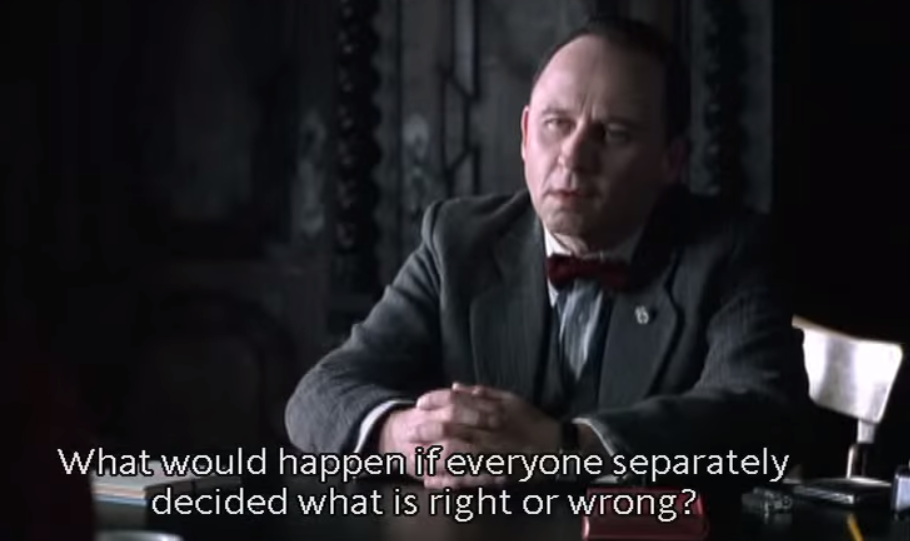On Feb. 22, 1943, brother and sister Hans and Sophie Scholl, and their colleague in the White Rose resistance organization, Christoph Probst, stood trial before the Volksgericht — the People’s Court that tried political offenses against the Nazi German state. Found guilty of treason by Roland Freisler, head judge of the court, the three were executed that same day. The method of capital punishment was guillotine.
Month: February 2015
John Hancock
 [W]e dread nothing but slavery. Death is the creature of a poltroon’s brains; ’tis immortality to sacrifice ourselves for the salvation of our country. We fear not death. That gloomy night, that palefaced moon, and the affrighted starts that hurried through the sky, can witness that we fear not death.
[W]e dread nothing but slavery. Death is the creature of a poltroon’s brains; ’tis immortality to sacrifice ourselves for the salvation of our country. We fear not death. That gloomy night, that palefaced moon, and the affrighted starts that hurried through the sky, can witness that we fear not death.
Video: The Last Days of the White Rose

If you have been following the “Today in Freedom” and new visual meme features here at Common Sense, you are aware of The White Rose, the group of German dissidents who in 1942 and 1943 produced pamphlets against the Nazi regime.
There have been several good books and movies produced about these young and now long-gone heroes. One of them is available free on YouTube. It focuses on young Sophie Scholls, and her final days — that is, her and her brother’s direct encounter with the Gestapo and the totalitarian Nazi state. Well worth watching, though prepare yourself — it is not a light, comic romp; anything but:
See the Townhall column of these events, now published on this site.
You owe it to yourself to read the six pamphlets of the White Rose, now available here.
On Feb. 21, 1848, The Communist Manifesto, written by Karl Marx with help from Friedrich Engels, was published in London by a group of German-born revolutionary socialists known as the Communist League.
On Feb. 21, 1916, the Battle of Verdun began with German bombardment of the city of Verdun, France. For ten months, the longest single engagement of World War II, German forces attacked the French along a 20-kilometer front crossing the Meuse River. When the battle ended, with no change in the strategic position of either army, the combined death toll was over 300,000 (out of over 700,000 casualties).
On Feb. 21, 1965, Malcolm X was gunned down by rival Black Muslims while addressing his Organization of Afro-American Unity in New York City.
For something a tad more upbeat, on this date in 1952 the British government, under Winston Churchill, abolished identity cards in the UK to “set the people free.”
Resigned in Disgrace
The political insider’s method of dealing with scandal since President Richard Nixon’s 1974 resignation has evolved. President Bill Clinton marshaled the stonewall defense, and his scandals didn’t quite stick, even as incriminating facts came to light. Nowadays, it seems like politicians can stay in office no matter what the misstep, what the folly, what the crime.
So it’s heartening to see a scandal actually lead to a sitting, elected executive leave office under a cloud, in full Nixonian fashion.
 It happened recently, in Oregon. Democratic Governor John Kithaber had stuck himself in a deep series of fixes, having to do with a girlfriend, green energy, insider advantages, influence peddling, and even the destruction of emails to avoid getting caught. He had hung on in the face of bad press, trying to pull a Clinton, but couldn’t manage that feat.
It happened recently, in Oregon. Democratic Governor John Kithaber had stuck himself in a deep series of fixes, having to do with a girlfriend, green energy, insider advantages, influence peddling, and even the destruction of emails to avoid getting caught. He had hung on in the face of bad press, trying to pull a Clinton, but couldn’t manage that feat.
On Wednesday, Secretary of State Kate Brown, next in line, took the oath of office as governor.
There is no reason to pour salt on the former governor’s wounds, or bring down hasty anathemas against his replacement.
But let’s take the occasion to state the obvious: Kitzhaber was an old hand. He was serving a fourth term. He obviously succumbed to the temptations everyone in power faces.
He might have avoided his current ignominy had Oregon established term limits for the executive position. Though some governors manage criminal corruption in their first term — former Virginia Governor Bob McDonnell comes to mind — one sure way to avoid corruption is to limit one’s exposure to corrupting influences.
This is Common Sense. I’m Paul Jacob.
Read the White Rose Leaflets

“Nothing is so unworthy of a civilized nation as allowing itself to be ‘governed’ without opposition by an irresponsible clique that has yielded to base instinct.”
Click here to read a complete collection of the White Rose leaflets
Click the thumbnail image above to view at full size, and then “right-click” or “control-click” to download. And please do feel free to share with your friends!
Hans Scholl

I knew what I took upon myself and I was prepared to lose my life by so doing.
Hans Scholl’s explanation of his and his sister Sophie’s opposition to Germany regime. He and his sister were beheaded by the German government on February 22, 1943, having been found guilty of high treason for writing, producing and distributing political pamphlets.
The “Big Week” bombing of Germany 1944
Beginning on Feb. 20, 1944, and lasting through Feb. 25, 1944, the United States Strategic Air Forces (USSTAF) launched a series of missions against the Third Reich that became known as “Big Week.” In six days, the Eighth Air Force bombers based in England flew more than 3,000 sorties and the Fifteenth Air Force based in Italy more than 500. Together they dropped roughly 10,000 tons of bombs. The daylight bombing campaign was also supported by RAF Bomber Command operating against the same targets at night. The campaign helped the Allies achieve air superiority, so the invasion of Europe could proceed. While U.S. industrial might could entirely replace losses during the “Big Week,” Germany was unable to do so.
If you’d like to catch a flight without the usual delays and post-911 regulation-inflicted hassles, used to be you had to own your own plane, charter one, or buy a time share in one.
Now you can use a smartphone app to book a seat on a private jet — just as you use an app to book an Uber driver outside the confines of the hyper-regulated taxi industry. Sure, private-jet seats are still pricey. But the New York Times reports that lower-end bookings are comparable in price to that of first-class seats on Delta or American.
 New services find spots for you on planes en route to pick somebody up that would otherwise be empty, or let you subscribe to blocks of time for use on a variety of jets. Result? More and more passengers are able to ride private jets thanks to startups like JetSmarter and Magellan Jets.
New services find spots for you on planes en route to pick somebody up that would otherwise be empty, or let you subscribe to blocks of time for use on a variety of jets. Result? More and more passengers are able to ride private jets thanks to startups like JetSmarter and Magellan Jets.
Those of us who lack the means to exploit this option-expanding development should still welcome it as a step in the right direction, away from burdensome regulatory regimes that slow us all down. I doubt we’ll get rid of the regulatory bog at the airport any time soon. After all, we’re still stuck with the government-subsidized USPS postal monopoly despite the competition in package delivery provided by UPS and FedEx.
But without the pressure and example of such relatively unencumbered alternatives, our situation would be worse; our prospects, dimmer.
This is Common Sense. I’m Paul Jacob.
John Hancock
 Some boast of being friends to government; I am a friend to righteous government, to a government founded upon the principles of reason and justice; but I glory in publicly avowing my eternal enmity to tyranny.
Some boast of being friends to government; I am a friend to righteous government, to a government founded upon the principles of reason and justice; but I glory in publicly avowing my eternal enmity to tyranny.

